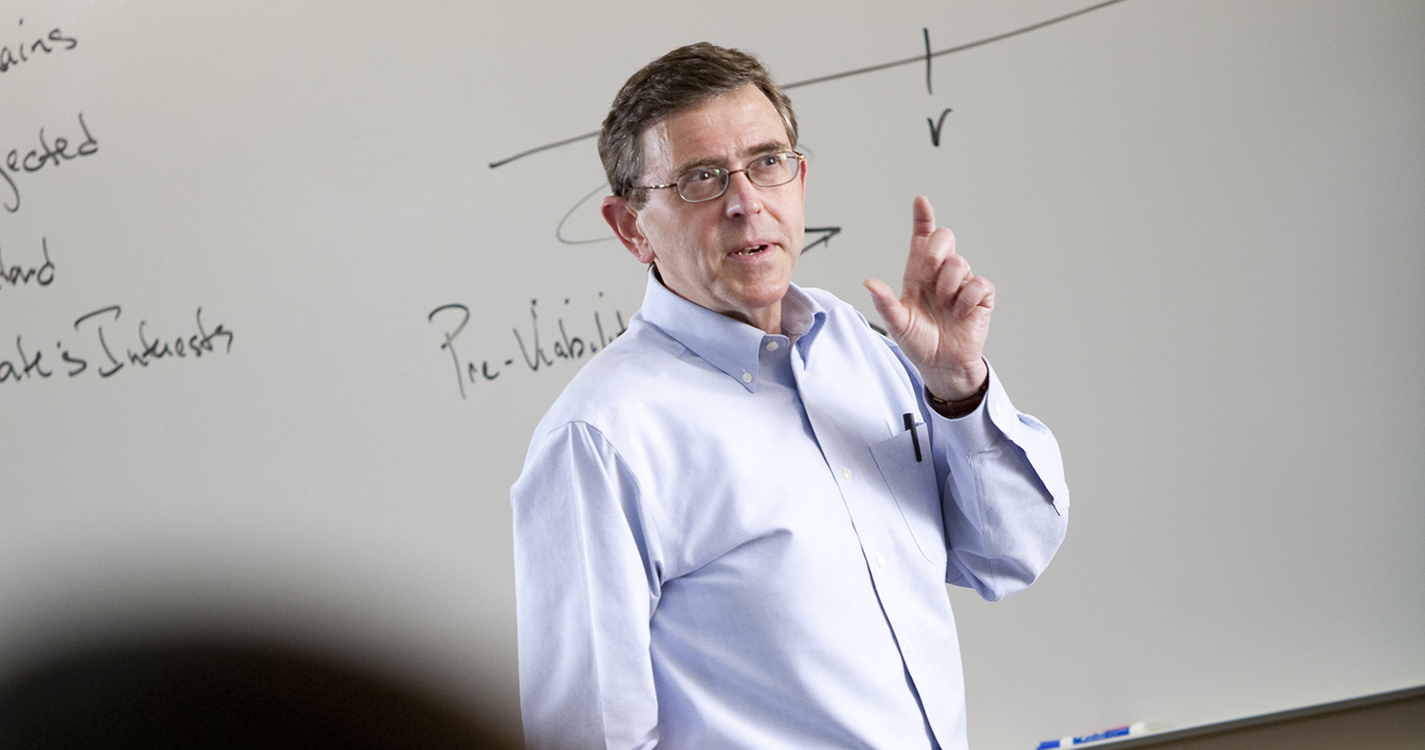Willamette Law’s Prof. Steve Green was on Utah radio station RadioWest February 7 to discuss the Johnson Amendment and President Donald Trump’s promise to do away with it. The amendment is a 1954 tax law that excludes charities, including churches, from backing political candidates. Trump said it’s a limit on churches’ right to free speech.
Green was on the show after Adam Chodorow, a tax law professor at the Sandra Day O’Connor College of Law at Arizona State University. Chodorow said there has always been some religious and nonprofit involvement in political matters. However, even before the 1954 amendment came around, as a definitional matter, the government said that churches and charities could not be involved in politics if they wanted to keep receiving tax breaks and subsidies.
Chodorow said that if the government allows those organizations to get deeply involved in politics, what will happen is that instead of donating to a 501(c)(4) or political party, people will donate to a church, get a deduction, and the church will then go out and advocate politically, creating a back-door deduction for political activities. There is a general rule in the US that political speech isn’t subsidized, Chodorow said. By excluding churches and charities from taxes, they are subsidized.
As it is now, Chodorow said the law is rarely enforced anyways.
“The IRS has basically shut its eyes,” Chodorow said. “It has engaged in very, very few investigations and even fewer enforcement efforts regarding the Johnson Amendment, because they just don’t want to go there.”
Green, who is a historian of church and state, was on the second portion of the show. He said the debate on whether the law should stay or go is about tax law, but also about the role of religion in public life. More than anything else, he said, it’s symbolic.
But since the Reagan-era, religious conservatives have discussed feeling like they are under attack. Green said considering that, there is a sense from many that they should be in the forefront on political issues and that the Johnson Amendment should be eliminated.
“Because many people of faith, I think quite rightly, believe that they have something to add on social issues,” Green said. “They have a prophetic voice that is important in American culture, and so they see this as an attempt to silence that voice.”
Like Chodorow, though, Green said the law is not often enforced but is the shadow of something that could happen. He could think of only one instance in which a church lost its tax-exempt status when it told parishioners not to vote for Bill Clinton.
“What’s ironic is the church was able to go back and re-file for tax exempt status right away for all of its future activities,” Green said, “so it doesn’t have as much teeth to it as most people think.”
As to whether the law should be abolished, Green said while most churches would probably police themselves, religion could lose credibility if it is allowed to be involved in political activity. The argument for separation of church and state is good for both religion and the government, he said.
“It’s a tenuous balance. Even some 230 to 240 years later, some of the framers were pretty smart about this,” Green said. “They knew that it’s better for religion to kind of keep to its fear — not saying that religions shouldn’t speak out on social issues — but understand the limits on how far they can go, because it will undermine their legitimacy.
“And, at the same time, government operates better when we don’t start saying there’s some sort of religious litmus test for any particular piece of legislation or for any public policy.”
Listen to the whole interview here.
About Willamette University College of Law
Opened in 1883, Willamette University College of Law is the first law school in the Pacific Northwest. The college has a long tradition at the forefront of legal education and is committed to the advancement of knowledge through excellent teaching, scholarship and mentorship. Leading faculty, thriving externship and clinical law programs, ample practical skills courses and a proactive career placement office prepare Willamette law students for today's legal job market. According to statistics compiled by the American Bar Association, Willamette ranks first in the Pacific Northwest for job placement for full-time, long-term, JD-preferred/JD-required jobs for the class of 2014 and first in Oregon for the classes of 2012, 2013, 2014, 2015 and 2016. Located across the street from the state capitol complex and the Oregon Supreme Court, the college specializes in law and government, law and business, and dispute resolution.

